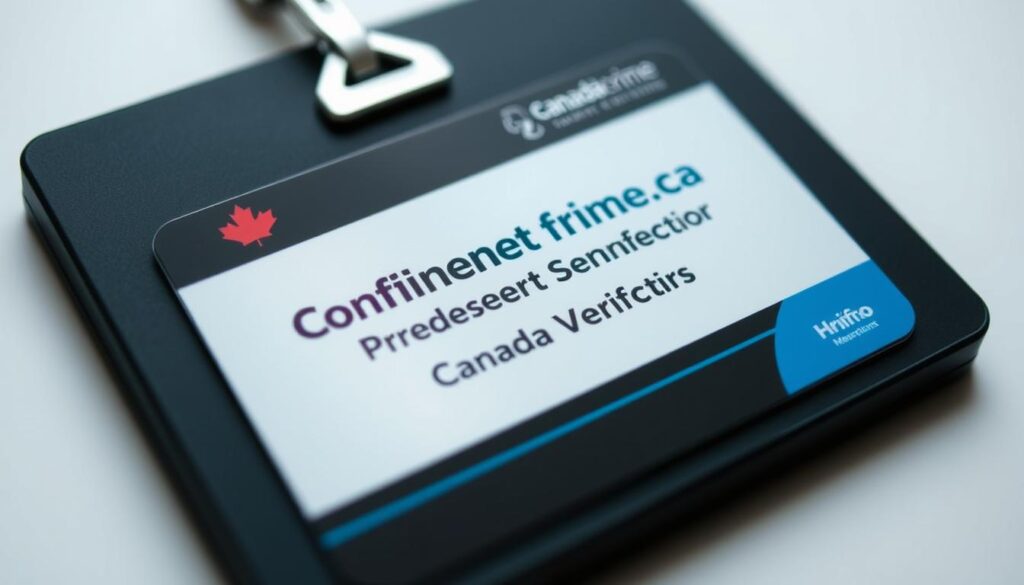Nearly 75% of new mothers face major physical and emotional challenges after childbirth. This critical recovery period is often overlooked in modern healthcare. Postpartum confinement services offer vital support for Canadian families during this time.
Postpartum confinement is a nurturing tradition practiced for centuries across many cultures. It’s not about isolation, but comprehensive care during your most vulnerable weeks. These services blend age-old wisdom with modern healthcare approaches.
Professional confinement support in Canada offers specialized meal prep and infant care guidance. You’ll also receive physical recovery assistance tailored to your specific needs. These services can follow traditional practices or modern adaptations based on your preferences.
More Canadian families are choosing these services for their effectiveness. They promote maternal wellbeing and successful breastfeeding. Proper postpartum support isn’t a luxury—it’s crucial for your health and baby’s development.
The Tradition and Practice of Postpartum Confinement
Maternal confinement after childbirth is one of humanity’s oldest health traditions. This recovery time allows new mothers to heal and bond with their newborns. The wisdom behind these practices has endured through generations, evolving to meet modern needs.
Historical Origins of Maternal Confinement
Ancient civilizations recognized the vulnerability of mothers and infants after birth. In China, “zuo yuezi” or “sitting the month” dates back over 2,000 years. This practice prescribed a 30-40 day period with specific guidelines for new mothers.
Ancient Greek and Roman societies also had postpartum seclusion periods lasting about 40 days. These practices reflected early observations about maternal recovery needs and infant protection.
Cultural Variations and Practices
Postpartum confinement traditions vary across cultures but share common elements. Asian practices often focus on dietary therapy and rest. Latin American “la cuarentena” emphasizes maternal bonding and family support.
European traditions involved community care networks. Indigenous practices incorporate ceremonial elements and natural medicines.
| Cultural Tradition | Duration | Key Features | Support System |
|---|---|---|---|
| Chinese “zuo yuezi” | 30-40 days | Warming foods, activity restrictions, no cold exposure | Mother-in-law or confinement nanny |
| Indian “jaappa” | 40-60 days | Ayurvedic diet, oil massages, herbal treatments | Female relatives, specialized caregivers |
| Latin “la cuarentena” | 40 days | Warm beverages, abdominal binding, rest | Extended family network |
| Indigenous Canadian | Variable | Ceremonial practices, traditional foods, community wisdom | Tribal elders, community members |
Modern Adaptations in Canadian Society
Canadian families are reimagining postpartum confinement to suit modern lifestyles. They honor diverse cultural backgrounds while focusing on supportive care that respects individual needs. This approach acknowledges the unique circumstances of each family.
In multicultural cities, specialized services blend traditional practices with evidence-based postpartum care. These might include customized meal delivery, in-home support, and modified activity guidelines. Such services cater to the needs of modern families.
Canadian healthcare providers now recognize the value of these cultural practices. Some hospitals offer culturally-sensitive postpartum care options. This integration bridges traditional wisdom and modern healthcare, providing comprehensive support during your postpartum journey.
Understanding Confinement Services and Their Benefits
Professional confinement services offer Canadian families a holistic approach to postpartum recovery. These services blend traditional wisdom with modern healthcare practices. They create a nurturing environment for new mothers during a vulnerable transition period.
Confinement services are voluntary and supportive, unlike detention or captivity. They provide expert guidance for healing, bonding, and adjustment. This care helps mothers recover naturally in a protective setting.

Physical Recovery and Healing Support
Pregnancy and childbirth cause significant bodily changes. Confinement services focus on restoring physical well-being through proven practices. These include specialized massages to reduce swelling and improve circulation.
Specialists help manage rest, ensuring adequate sleep despite newborn care demands. They use traditional healing methods like herbal baths to speed recovery. These techniques have been refined over generations.
Nutrition receives special attention during this period. Confinement meal services provide nutrient-dense foods to replenish blood and enhance lactation. This approach rebuilds strength, unlike restricted diets in involuntary situations.
Mental Health and Emotional Well-being
The postpartum period can be emotionally challenging. Confinement support helps prevent depression and anxiety through consistent companionship. Specialists recognize early signs of distress and connect mothers with appropriate resources.
Proper confinement care balances social connections with privacy. This approach prevents loneliness, which often contributes to postpartum mood disorders. It differs from the isolation associated with detention scenarios.
| Emotional Challenge | Confinement Service Solution | Benefit to Mother | Benefit to Baby |
|---|---|---|---|
| Overwhelming responsibility | Guided baby care coaching | Increased confidence | Consistent care routines |
| Sleep deprivation | Night support shifts | Better mental clarity | Calmer feeding sessions |
| Social isolation | Companionship and conversation | Reduced depression risk | Exposure to positive interactions |
| Anxiety about baby’s health | Professional monitoring and education | Peace of mind | Early intervention if needed |
Specialized Newborn Care Advantages
Newborn care requires specific skills. Confinement specialists bring expertise in infant care basics, from bathing to umbilical cord care. They guide parents through feeding challenges, helping establish successful routines.
Gentle coaching builds parental confidence in understanding baby’s cues and needs. This support empowers parents with knowledge and skills. It contrasts sharply with the helplessness often felt in restrictive environments.
Specialists also monitor baby’s development, noting any concerns requiring medical attention. This vigilant oversight provides peace of mind. It helps new parents distinguish between normal behaviors and those needing intervention.
Canadian Regulations and Standards for Confinement Services
Canadian regulations for confinement services ensure safe, high-quality postpartum care. These services operate within a framework protecting mothers and newborns while respecting personal autonomy. Unlike institutional lockdown situations, confinement services allow freedom of movement.
Canada’s regulatory approach balances safety with choice in postpartum support services. Regulations vary across provinces but share common goals. They protect vulnerable mothers and infants while promoting optimal recovery conditions.

Provincial Licensing Requirements
Each Canadian province has unique licensing requirements for confinement service providers. British Columbia requires registration with the Provincial Health Services Authority. Ontario mandates certification through the College of Midwives for certain postpartum services.
Quebec has comprehensive regulations, requiring all providers to complete provincial registration and annual reviews. Alberta and Manitoba focus on facility-based requirements for services outside the home.
The licensing process typically involves:
- Submission of professional credentials and training certificates
- Facility inspection (for center-based services)
- Proof of insurance and liability coverage
- Demonstration of emergency protocols and procedures
Health Code Compliance for Service Providers
Health code regulations ensure optimal conditions for postpartum recovery in confinement service environments. These standards apply to both facility-based and in-home providers. Key areas include food safety, sanitation protocols, and infection control measures.
Food preparation follows guidelines to support recovery and successful breastfeeding. According to Public Safety Canada, proper oversight is crucial for maintaining health and safety standards.
Infection control has become increasingly important. Providers must implement enhanced sanitization protocols and maintain proper ventilation. Regular inspections ensure ongoing compliance with these critical standards.
Professional Certification Standards
Professional certification ensures confinement service providers have the necessary skills to support new mothers. Postpartum confinement support requires specialized training in physical recovery and cultural practices. Most provinces recognize certifications from established organizations in postpartum care.
These credentials verify that providers understand the unique needs of postpartum women. They also ensure providers can deliver culturally appropriate care.
Training Requirements
Comprehensive training for confinement service providers typically includes:
- Infant care fundamentals and newborn safety
- Postpartum physical recovery support techniques
- Breastfeeding assistance and troubleshooting
- Cultural competency for diverse traditions
- Mental health first aid and postpartum mood disorder recognition
Most provinces require 80-120 hours of specialized training. Additional requirements apply for specialized services like lactation support. Continuing education is mandated to ensure providers stay current with best practices.
Background Check Protocols
Thorough background screening is crucial for confinement service regulation. All providers must undergo criminal record checks through the Canadian Police Information Centre (CPIC). Many provinces have implemented enhanced verification systems for comprehensive screening.
These protocols include:
- Vulnerable sector screening
- Child abuse registry checks
- Employment history verification
- Professional reference validation
These measures ensure individuals with concerning histories cannot work with new mothers and infants.
| Province | Licensing Body | Minimum Training Hours | Background Check Type | Renewal Period |
|---|---|---|---|---|
| Ontario | Ministry of Health | 120 | CPIC + Vulnerable Sector | 2 years |
| British Columbia | Provincial Health Services | 100 | Criminal Record + Child Protection | 3 years |
| Quebec | Ordre des sages-femmes | 150 | CPIC + Provincial Registry | 1 year |
| Alberta | Health Services Authority | 80 | CPIC + Vulnerable Sector | 2 years |
Types of Confinement Support Available Across Canada
Canadian postpartum support services offer nurturing environments for new mothers to heal and bond with their babies. These services differ greatly from structured intervention units. They focus on comfort, care, and cultural sensitivity.
Families can choose from various options that fit their needs, preferences, and budgets. These services create a supportive atmosphere for new mothers and their infants.
In-Home Confinement Nanny Services
In-home confinement nannies provide personalized care right in your own home. These professionals offer round-the-clock support during the critical recovery period.
They help with newborn care, breastfeeding, light housekeeping, and preparing nutritious meals. Unlike restrictive settings, these services create a nurturing environment where you maintain control.
Costs range from $25-$40 per hour for part-time support to $3,500-$6,000 monthly for live-in assistance. To find reputable providers, check certifications, interview candidates, and review references.
Postpartum Care Centers and Facilities

Postpartum care centers offer a middle ground between hospital settings and home recovery. These facilities provide comprehensive care without the clinical feel of medical enclosure.
Centers typically have private rooms, 24/7 nursing care, lactation consultants, and chef-prepared meals. Many incorporate cultural practices specific to different communities, especially Chinese, Korean, and South Asian traditions.
Virtual and Remote Support Options
Technology has made quality postpartum care accessible even in remote Canadian regions. Virtual options include telehealth consultations, online communities, and digital meal planning services.
These services offer flexibility without feeling confined to a specific location or schedule. They provide support tailored to your needs and preferences.
Community-Based Programs in Major Canadian Cities
Major urban centers host various community-based postpartum support programs. These programs honor diverse cultural traditions while meeting modern needs.
| City | Program Types | Cultural Focus | Cost Range | Availability |
|---|---|---|---|---|
| Toronto | Cultural centers, hospital outreach, community doulas | Chinese, South Asian, Caribbean | $0-$3,000 | Year-round |
| Vancouver | Postpartum houses, community kitchens, support groups | East Asian, South Asian, Indigenous | $0-$5,000 | Year-round |
| Montreal | Home visiting programs, cultural centers, doula collectives | Francophone, Middle Eastern, Haitian | $0-$2,500 | Seasonal programs |
| Calgary | New mother groups, cultural associations, meal services | Filipino, South Asian, East African | $0-$2,000 | Limited availability |
Community programs often offer sliding-scale fees or free services for families with financial constraints. This ensures that supportive confinement practices are accessible to all Canadian families.
Traditional Confinement Nutrition and Meal Services
Postpartum confinement nutrition nourishes the body with therapeutic foods for optimal recovery. It’s a key part of effective postpartum care. It gives new mothers essential nutrients for healing and prevents isolation during early parenthood.
Proper nutrition during this time supports physical recovery. It also contributes to emotional well-being. This approach provides the nutrients needed without restrictive isolation practices.

Healing Foods and Their Therapeutic Properties
Traditional confinement diets use specific ingredients to promote healing after childbirth. Warming foods like ginger and black pepper help eliminate “cold” from the body. This concept aligns with reducing inflammation and improving circulation.
Many traditional confinement foods have scientific merit. Bone broths provide collagen and minerals for tissue repair. Iron-rich foods like liver help replenish blood lost during delivery.
Galactagogues such as fenugreek naturally enhance milk production for nursing mothers. These foods support the body’s recovery and balance after giving birth.
Canadian-Sourced Ingredients and Adaptations
Canadian adaptations of confinement recipes use local ingredients with therapeutic benefits. Pacific salmon provides essential omega-3 fatty acids that reduce inflammation. Canadian-grown ginseng offers properties that help combat fatigue and stress.
Maple syrup replaces rock sugar in many recipes, offering minerals and antioxidants. Local berries like blueberries provide powerful antioxidants that support immune function during recovery.
Meal Preparation and Delivery Services
Specialized confinement meal services across Canada offer convenience to new mothers. Companies like Mommy Cuisine in Vancouver provide customized meal plans delivered to your door. These services typically offer packages ranging from $300-$600 weekly.
Many services provide freezer-friendly meals prepared before birth. This support eliminates the stress of meal planning during confinement. It allows you to focus on recovery and bonding with your newborn.
Dietary Considerations for Nursing Mothers
Proper nutrition during confinement is crucial for breastfeeding mothers. Caloric needs increase by about 500 calories daily while nursing. Emphasis is on protein, calcium, and hydration.
Foods rich in healthy fats support milk production. They provide essential fatty acids for your baby’s development. Some mothers find certain foods may affect their baby’s comfort during nursing.
Keeping a food diary can help identify potential sensitivities. Hydration remains paramount—aim for at least 3 liters of fluid daily. This supports milk production and your overall recovery.
Comprehensive Postpartum Care Techniques
Comprehensive postpartum care takes a holistic approach to maternal healing. Modern confinement services blend traditional wisdom with current healthcare practices. They support new mothers through recovery, addressing physical healing, rest, infant feeding, and emotional wellbeing.
Physical Recovery Therapies and Treatments
Physical recovery after childbirth needs specialized care from confinement services. Abdominal binding supports weakened core muscles and helps shrink the uterus. These therapies actively promote healing, unlike restrictive quarantine measures.
Specialized massage targets areas strained during pregnancy and delivery. Many services use herbal treatments, like ginger baths, to restore balance. These approaches focus on gentle, progressive movement for postpartum bodies.

Heat therapy relieves muscle tension and promotes healing. Warm compresses and heated stones are common tools. This active rehabilitation contrasts sharply with detention-like restrictions.
Rest Management and Sleep Support
Quality rest is crucial for postpartum recovery but often elusive for new mothers. Confinement services use structured sleep strategies to maximize rest opportunities. Sleep scheduling coordinates infant care to create longer sleep windows for mothers.
They optimize sleep environments by controlling light, temperature, and noise. Unlike forced isolation, these approaches aim to support rather than restrict. Nighttime feeding assistance is a valuable service, allowing mothers to sleep longer.
Many providers offer overnight care. Professionals handle nighttime feedings and diaper changes. This allows mothers to achieve deeper, restorative sleep cycles critical for recovery.
Breastfeeding Guidance and Resources
Successful breastfeeding needs skilled support, especially early on. Services typically include access to certified lactation consultants. They guide proper positioning, latch techniques, and feeding schedules. These experts help solve common challenges before they become major problems.
Milk supply management includes nutrition guidance and hydration protocols. Unlike detention, this approach empowers mothers with knowledge and skills. Many services provide specialized equipment like hospital-grade pumps and nursing pillows.
Emotional Support and Mental Health Monitoring
Emotional recovery demands careful attention from trained professionals. Providers screen for early signs of postpartum depression and anxiety. This proactive approach differs from quarantine isolation, which can worsen mental health outcomes.
They create safe spaces for mothers to process birth experiences. Validation of feelings helps reduce anxiety during this transition. Providers connect mothers to community resources for ongoing care.
| Care Technique | Traditional Approach | Modern Canadian Adaptation | Benefits |
|---|---|---|---|
| Abdominal Binding | Tight cloth wrapping | Specialized postpartum garments | Core support, posture improvement |
| Heat Therapy | Continuous bed warming | Targeted heat treatments | Improved circulation, pain reduction |
| Rest Management | Complete activity restriction | Structured sleep scheduling | Enhanced recovery, mental clarity |
| Emotional Support | Family-based counseling | Professional mental health screening | Reduced depression risk, improved bonding |
When needed, providers refer mothers to mental health professionals. This ensures mothers don’t face challenges alone or in isolation. Continuous support helps new mothers thrive during this important transition.
Selecting the Right Confinement Service Provider
Choosing a confinement service provider is vital for new parents in Canada. These services offer a nurturing environment that supports your recovery. They respect your choices and preferences during this crucial period.
Take time to evaluate potential providers carefully. This ensures you receive quality care after your baby’s birth. Professional guidance can make a big difference in your postpartum journey.
Essential Qualifications and Credentials
Look for specific qualifications when reviewing potential confinement service providers. They should have formal training in postpartum care. Certifications in first aid and infant CPR are also important.
Check if they know traditional practices and modern healthcare principles. Experienced providers usually have 2-3 years of work with new mothers and babies. Ask about their knowledge of lactation support and newborn care routines.
The best providers keep learning about maternal care. They stay up-to-date with the latest research and techniques. This ensures you get the best possible care.

Interview Process and Assessment Guidelines
Make a list of questions before interviewing providers. Discuss their approach to postpartum care. Make sure it matches your expectations and values.
Key questions to ask include:
- How do you structure daily routines for mother and baby?
- What specific confinement traditions do you incorporate?
- How do you handle emergency situations?
- What methods do you use to support breastfeeding?
Notice how they communicate and adapt to your needs. The right provider will guide you while respecting your choices. Unlike captivity, they should empower you with their expertise.
Reference Verification and Background Checks
Always verify references from at least three previous clients. Ask about the provider’s reliability and problem-solving skills. Find out how they handled unexpected situations.
Do thorough background checks, including criminal records and license validation. Make sure they have proper insurance for their services. Good providers will happily provide this information.
Cultural Sensitivity and Language Considerations
Many families value cultural traditions during the confinement period. Check if providers understand and respect your specific cultural practices. If you prefer services in your native language, confirm their fluency level.
Clear communication is crucial when discussing health concerns and care instructions. Some providers specialize in specific cultural traditions. These might include Chinese zuo yue zi or Korean saam-chil-il.
Finding someone familiar with your cultural background can enhance your experience. It helps ensure your postpartum journey aligns with your values and traditions.
Financial Aspects of Confinement Services in Canada
Planning ahead helps manage postpartum confinement costs in Canada. Proper knowledge of options can help you access quality care. You can avoid financial strain with the right approach.
Understanding the investment and exploring support systems is crucial. This way, you can get the care you need without breaking the bank.

Cost Structures and Service Packages
Confinement service pricing in Canada depends on location, duration, and care level. Full-time in-home support costs $3,500 to $6,000 per month. Part-time assistance ranges from $1,800 to $3,200 monthly.
Providers offer tiered packages for different needs and budgets:
- Basic Package: Includes essential meal preparation and light housekeeping (15-25 hours weekly)
- Standard Package: Adds newborn care assistance and more comprehensive meal services (25-40 hours weekly)
- Premium Package: Provides round-the-clock support with specialized postpartum therapies and complete household management
Insurance Coverage and Healthcare Benefits
Provincial health plans don’t usually cover confinement services directly. However, some private options exist. Extended health benefits might include postpartum support under paramedical or home care provisions.
Health spending accounts (HSAs) offer another coverage option. These accounts let you use pre-tax dollars for eligible health expenses. This can include confinement care when properly documented.
Provincial Support Programs and Subsidies
Some provinces offer financial help for confinement service costs:
| Province | Program Name | Eligibility Criteria | Potential Benefit |
|---|---|---|---|
| British Columbia | Healthy Babies Program | Income-based qualification | Up to $1,200 for postpartum support |
| Ontario | Healthy Smiles Ontario Plus | Families with newborns | Partial coverage for in-home support |
| Quebec | Perinatal Support Initiative | All new mothers | 20-40 hours of subsidized care |
Tax Deductions and Financial Planning
The Canada Revenue Agency may allow certain confinement expenses as medical expense tax credits. These must be prescribed by a healthcare provider. Keep detailed receipts and ask providers to itemize medical versus non-medical care components.
To manage costs effectively:
- Begin saving specifically for postpartum care during pregnancy
- Inquire about payment plans—many providers offer installment options
- Consider sharing services with another family to reduce expenses
- Explore community-based programs that offer sliding scale fees
Proper postpartum support can prevent long-term health issues. These issues could lead to greater financial burdens. Many families find quality confinement services accessible with careful planning.
Conclusion: Embracing Supportive Postpartum Care for Your Well-being
Postpartum confinement offers a nurturing space for new mothers to heal and bond. This practice has evolved in Canada to respect cultural heritage and modern family needs. It provides a voluntary, supportive environment for new moms.
Your postpartum period sets the foundation for long-term health and parenting success. Professional confinement services provide structured support for Canadian families. They create a protective space that shields you from external stressors.
Specialized providers across Canada offer customized services blending traditional wisdom with modern healthcare. Options exist to match your cultural background, preferences, and budget. These include in-home support, meal services, and comprehensive care centers.
Consider how confinement services might fit into your postpartum strategy. The right support can impact your physical healing and emotional stability. It can also boost your confidence as a new parent.
Your well-being matters for your entire family’s health and happiness. Research providers in your area and ask about their qualifications. Discuss how their services can be tailored to your specific needs.
Canadian society increasingly accepts postpartum care traditions. This means you have more options to access valuable support systems. Explore these opportunities to enhance your postpartum experience.

